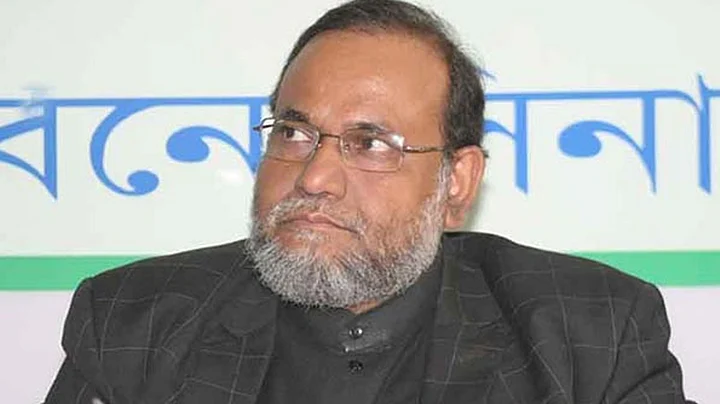On Tuesday, Bangladesh’s top court rejected a final appeal by the leader of an Islamist party against a death sentence for atrocities committed during the 1971 war of independence, lawyers said, meaning he could be hanged at any time.
In March, the Supreme Court upheld the death penalty for Mir Quasem Ali, 63, a media tycoon and key financier of the Jamaat-e-Islami party, for murder, confinement, torture and incitement to religious hatred during the war to break away from Pakistan.
Now it is only a matter of time to execute the verdict, unless he seeks clemency from the president.Mahbubey Alam, Attorney General
The Jamaat leader and his family have yet to decide whether to approach the president, said Ali’s lawyer, Khandaker Mahbub Hossain. “All the legal battles are over now,” he told reporters.
Ali could go to the gallows any time without such clemency.
The verdict comes amid a spate of militant attacks in the Muslim-majority nation, the most serious being the Dhaka attack on 1 July , when gunmen stormed a cafe in the capital and killed 20 hostages, most of them foreigners.
The rejection, by a panel of five judges headed by Chief Justice Surendra Kumar Sinha, comes a day after a visit by US Secretary of State John Kerry during which he urged Bangladesh to uphold democratic principles.
The war crimes tribunal set up by Prime Minister Sheikh Hasina in 2010 has sparked violence and drawn criticism from opposition politicians, who say it is victimising her political opponents. The government denies the accusations.
Human rights groups say the tribunal’s procedures fall short of international standards, but the government rejects that assertion, and the trials are supported by many Bangladeshis.
Authorities have deployed additional security forces across Bangladesh as similar previous judgments triggered violence that killed around 200, mainly Jamaat activists and police.
Since December 2013, four Jamaat leaders, including former top leader Motiur Rahman Nizami, and a leader of the main opposition party, have been executed for war crimes.
Official figures show about 3 million people were killed and thousands of women raped during the nine-month war, in which some factions, including the Jamaat-e-Islami, opposed the break from what was then called West Pakistan.
But the party denies its leaders committed any atrocities.
(At The Quint, we question everything. Play an active role in shaping our journalism by becoming a member today.)
